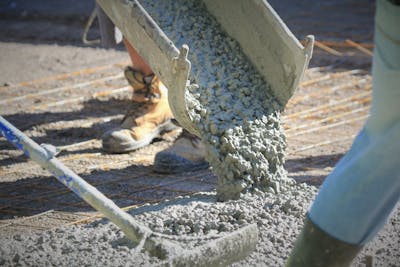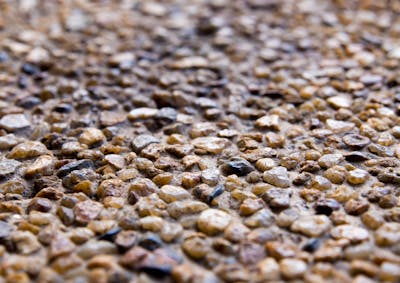Find the Best Slab Formwork Suppliers Near You
- Post a job
- Receive multiple quotes
- Choose your preferred Slab Formwork supplier
Where do you need Slab Formwork?
Describe your job and our suppliers will send you quotes
Slab Formwork Systems on iseekplant
At iseekplant, we feature a comprehensive range of slab formwork suppliers, catering to various construction needs across Australia. Slab formwork is essential for building concrete slabs, ranging from simple timber setups to advanced, engineered solutions. Our selection suits different project scales and complexities, ensuring you find the right formwork for your construction requirements.
Slab Formwork Hire Rates Guide
This table outlines the average day rates for slab formwork:
| Formwork Type | Installation Rate (Per Square Meter) | Daily Rate |
|---|---|---|
| Timber Formwork | $20 - $30 | $280 - $400 |
| Steel Formwork | $25 - $35 | $320 - $450 |
| Aluminium Formwork | $30 - $40 | $360 - $480 |
Note: Prices may vary based on specific system types, project duration and location. All prices exclude GST and are in AUD.
Additional Costs to Consider
Beyond the basic hire rates, several additional costs can impact your budget:
| Additional Cost | Average Rate | Description |
|---|---|---|
| Delivery & Setup | $150 - $350 | Varies by distance and complexity of setup |
| Dismantling & Removal | $100 - $300 | Depends on the scale of the project and the amount of material to be removed |
| Damage Waiver | 7% - 15% of hire cost | Covers accidental damage during the hire period, adjusted to reflect current insurance rates |
| Concrete Per Meter | $60 - $150 | Price varies based on mix type, location and quantity ordered |
| Line Pump Hire | $200 - $500 per day | Rate depends on the pump capacity and distance of the concrete pour |
| Boom Pump Hire | $500 - $800 per day | Cost varies with boom length and project complexity |
Unforeseen costs can impact your project budget. Our Get a Quote tool connects you with our network of suppliers, offering customised quotes that reflect your project’s specific financial requirements. Start planning today – click 'Get a Quote' for a comprehensive cost breakdown.
Types of Slab Formwork Systems Available for Hire
Our network offers various slab formwork systems, each tailored to meet different construction demands: traditional timber, modular steel and lightweight aluminium. Here’s where these three materials work best:
- Traditional Timber Formwork: Ideal for smaller projects or custom shapes.
- Modular Steel Formwork: Best for larger projects requiring durability and repeatability.
- Lightweight Aluminium Formwork: Suitable for projects requiring quick setup and flexibility.
Timber vs. Steel vs. Aluminium Slab Formwork
Choosing the right material for slab formwork is crucial for efficiency and cost. Timber, steel and aluminium each offer unique advantages and limitations. Understanding these differences helps in selecting the best option for your project.
- Timber Formwork: Timber is cost-effective and versatile, ideal for complex shapes. However, its durability is less, compared to metal formworks, making it suitable for smaller projects or where formwork isn't reused often.
- Steel Formwork: Known for its strength and longevity, steel formwork is highly reusable. It's heavier than other types, making it best for large-scale, repetitive projects where its durability can be fully utilised.
- Aluminium Formwork: Aluminium stands out for its lightweight nature, making handling and assembly easier. It's perfect for projects requiring quick construction cycles, though it may be less cost-effective than timber for smaller projects.
This table compares these three popular slab formwork materials:
| Material | Cost-Effectiveness | Durability | Ease of Handling | Reusability | Suitability for Project Types |
|---|---|---|---|---|---|
| Timber | High | Moderate | High | Low | Small, irregular projects |
| Steel | Moderate | High | Low | High | Large-scale, repetitive |
| Aluminium | Low | Moderate | High | Moderate | Quick turnaround projects |
Installation Techniques for Different Slab Formwork Systems
Installing slab formwork systems requires precision and understanding of the structure. Different materials and designs necessitate specific techniques. Proper installation ensures safety and efficiency on site. Here’s a quick overview of the proper installation of popular slab formwork systems:
- Timber Formwork: Involves measuring, cutting and assembling on-site. Requires skilled carpentry.
- Steel Formwork: Often comes in prefabricated panels; needs crane assistance for placement.
- Aluminium Formwork: Modular design allows quick and easy assembly, often manually handled.
Each formwork system has its unique installation process, impacting project timelines and labour requirements. Our suppliers can provide detailed guidance and support, ensuring optimal setup for your project needs.
Essential Equipment for Slab Formwork Installation
For effective slab formwork installation, certain equipment is indispensable. These tools and machines facilitate accurate and safe construction:
- Cranes: For lifting heavy formwork panels. Cranes are crucial for moving large and heavy materials efficiently.
- Concrete Pumps: Essential for pouring concrete. Concrete pumps provide a means to effectively transfer liquid concrete to the formwork site.
- Laser Levels: To ensure accurate alignment. Laser levels are vital for maintaining level and plumb lines during formwork installation.
- Scaffolding: Provides access and support. Scaffolding is necessary for workers to reach high areas safely.
- Power Tools: For assembling and dismantling formwork. Power tools increase efficiency and reduce manual labour.
This table highlights the popular models per equipment, their specifications and applications in slab formwork installation:
| Equipment | Popular Model | Quick Specs | Application in Slab Formwork Installation |
|---|---|---|---|
| Cranes | Liebherr 710 HC-L | Max. Load: 60 t, Height: 70 m | Lifting and positioning formwork panels |
| Concrete Pumps | Putzmeister BSA 2110 HPD | Output: 102 m³/h, Pressure: 220 bar | Pouring concrete into formwork |
| Laser Levels | Topcon RL-H5A | Accuracy: ±1.5 mm at 30 m | Ensuring formwork is level and aligned |
| Scaffolding | Layher Allround | Various configurations | Access and support for workers during installation |
| Power Tools | DeWalt Cordless Drills | Voltage: 18V, Speed: 2,000 rpm | Assembling and dismantling formwork efficiently |
These tools and equipment play a critical role in ensuring that slab formwork is installed correctly, safely, and efficiently, contributing significantly to the success of any construction project involving slab formwork.
Find the Perfect Slab Formwork Solution Today!
Starting a construction project that requires slab formwork? Look no further than iseekplant! We connect you to our network of slab formwork systems tailored to meet the specific needs of your project. Whether you're working on a commercial high-rise or a residential property, our network has the right formwork solution. From timber to aluminium options, we've got it all. If your project requires other heavy machinery, we can connect you with dozer, excavator and demolition equipment suppliers.
And if you're unsure which type suits your project best, our team at projects@iseekplant.com.au or 1300 691 912 is here to help. Ready to streamline your construction process with the right slab formwork? Click 'Get a Quote' now and let iseekplant be your partner in building success!
Popular Slab Formwork Locations
Related Categories
Become a supplier
How It Works
Slab Formwork FAQs
Here's some tips and frequently asked questions on how to find the right slab formwork for your job.
What do we have to offer?
Want to Know More?

How thick should a concrete slab be?
The usual thickness of a concrete slab is around 10 cm; however, any c...

Exposed Aggregate Concrete Cost Guide 2022: How much does aggregate concrete cost?
Exposed aggregate concrete includes many different-sized and coloured gr...
